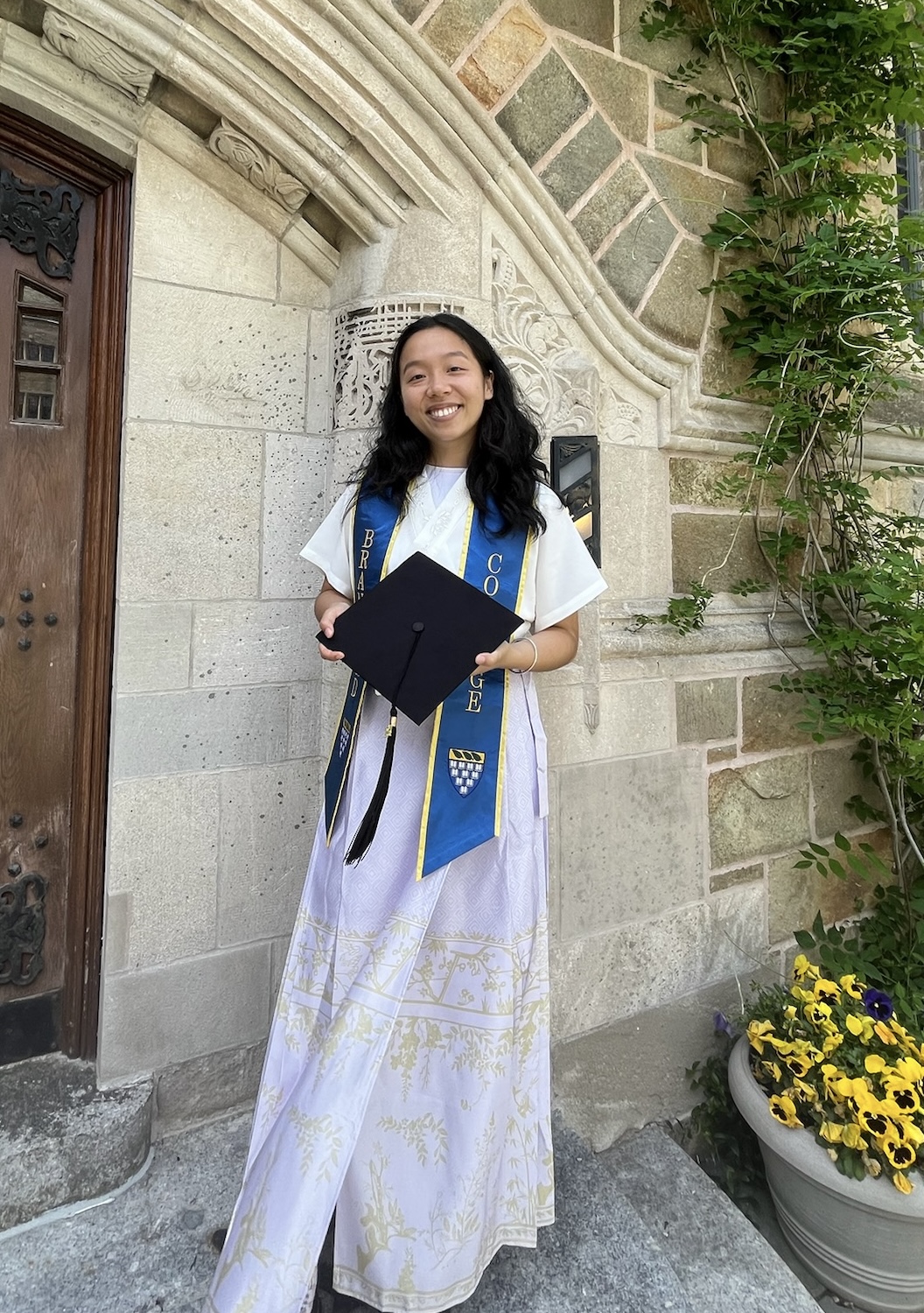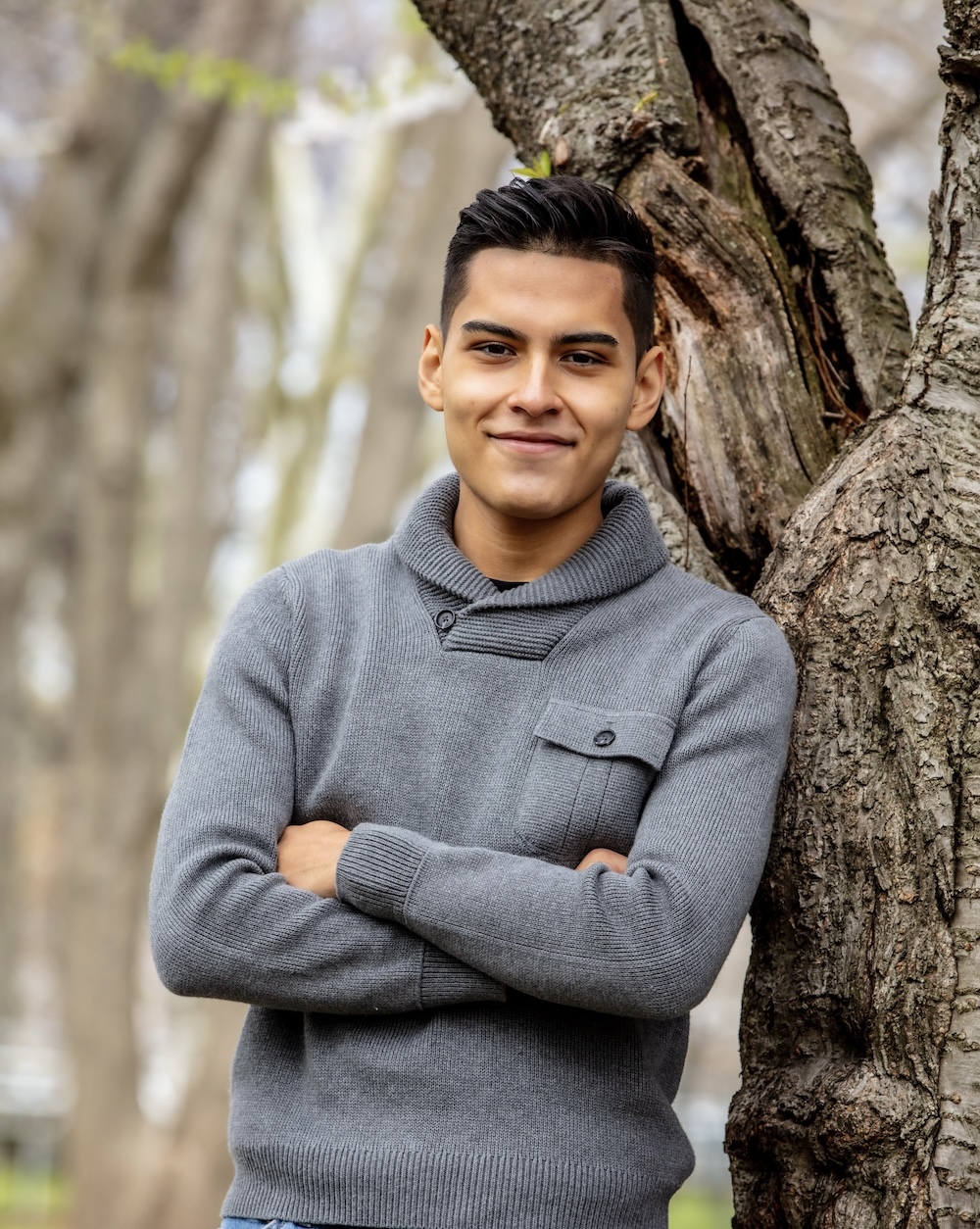RITM congratulates the 2024 winners of the Henry K. Hayase Prize and the Carlos R. Moreno Prize. Winners were selected by faculty selection committees and announced during the 2024 commencement ceremonies.
Established in 1988, the Henry K. Hayase Prize is awarded annually to the best student paper or senior essay dealing with a topic relating to Asian American experiences in the United States.
Established in the fall of 2009, the Justice Carlos R. Moreno Prize is awarded annually to the best senior essay focusing on the field of Latinx Studies, or on the Latinx experience in the United States.
Learn more about the winners and their senior essays below.
2024 Henry K. Hayaze Prize Awardee
K. Wang, Ethnicity, Race, and Migration
"There are some things you cannot hear”: Towards Building a Counter-Archive
Wang offers us a moving and carefully executed series of art pieces across a wide range of media and art forms (poetry, collage, sculpture, poetry, weaving/crochet, baking etc). The strongest pieces that best connected the ideas offered in the opening artist’s statement to the content and form of the artistic pieces were the fortune cookies (with fragments from oral histories in place of “fortunes” connected to the family history of Chinese migration and labor in the restaurant industry) and the hand sculptures which reference but do not replicate the techniques of Fuzhounese bodiless lacquerware, a “folk” artform that originates in wang’s ancestral home. The choice to have a collage element to the hand sculptures was really brilliant and beautifully executed with the archival images of labor and migration forming a “rough” layer of skin on the hand sculptures. The fortune cookies and hand sculptures best integrated the theoretical framing of the project imagining art objects as counter-archives of that which is considered non-archivable—ephemeral and impermanent structures, experiences, and emotions: cookies and wisdom to be prepared, shared and consumed and nourished by; hands as a history textbook with images and words to be read but also roughness (cracks in the narrative as wang puts it) to break up the smooth narrative of Asian labor.
Advisor: Sunny Xiang

k wang (they/them) is a lover of stories and collector of memories, currently residing on Peoria, Myaamia, and Bodéwadmiakiwen lands, or northwestern Indiana. Their ancestral home is the mild tropics of Fuzhou, Fujian. While at Yale, they studied Ethnicity, Race, and Migration, conducted original research as a Mellon-Mays Undergraduate Fellow, served as peer liaison for Student Accessibility Services, and held leadership positions at Dwight Hall organizations. Their senior thesis was a creative, collaborative, multidisciplinary and mixed media project that traced the histories and presences of Chinese food workers in the U.S. Next fall, k will be pursuing their doctoral studies in American Studies and Ethnic Studies at the University of Southern California.
2024 Carlos R. Moreno Prize Awardees
Eliza Kravitz, History
What the Lens Conceals: Colliding Perspectives on the Bracero Program in 1950s Monterrey, Nuevo León
This richly textured essay draws on a stunning array of archival, historiographic, and visual sources to tell a migrant-centered account of bracero politics in Monterrey, Mexico. Kravitz uses oral histories, Mexican publications, and government reports to expose the failures of U.S. critics of the Bracero Program to engage fully with the social objectives of the migrant workers themselves. She reads the photography of reformist journalist Leonard Nadel against the wide-ranging debates over social reform and economic development in Monterrey to show how aspiring braceros sought to use the labor contracts to their own, diverse, ends. Kravitz repositions migrant laborers as agents in the Mexican and binational contests over the social impact of the labor loan through luminous, revelatory prose.
Advisor: Sunil Amrith
Eliza Kravitz graduated from Yale in 2024 with a B.A. in History and certificates in Human Rights and Spanish. During my time at Yale, I involved myself with the Yale Glee Club as well as several service organizations, including the Yale Interpretation Network, Volunteer Income Tax Assistance, and the Yale Undergraduate Prison Project. I also engaged in varied work relating to migration at the U.S.-Mexico border. I spent one summer each working at Texas RioGrande Legal Aid in the border town of Eagle Pass, Texas and at Casa Monarca, a migrant shelter in Monterrey in northern Mexico. These professional experiences lay the groundwork for my senior History thesis on Monterrey's local history of the Bracero Program, a binational farm labor migration program in the mid-twentieth century. This academic research in turn crystallized my interest in working with and supporting migrant farmworker communities, which I am excited to be able to do beginning this fall with the Coalition of Immokalee Workers in southwest Florida.
Jean Tobar, Anthropology
Latinx Shoppers and the Making of Class and Racial Identities: A Portrait of the Mall at Bay Plaza in the Bronx, NY
Combining detailed archival history with revelatory ethnographic interviews, Jean Tobar’s essay conveys the affective lives of Latinx shoppers at the Mall at Bay Plaza with deep insight and empathy. His authoritative engagement with the anthropology of capitalism illuminates how the mall facilitates these Bronx residents’ aspirational membership to global consumer society. Through spatial analysis and political economy, he demonstrates how the mall is simultaneously imbricated in the racializing structures that consign Latinx shoppers to economic precarity.
Advisors: Douglas Rogers and Ana Ramos-Zayas

Originally from the Bronx, New York, Jean graduated from Yale College this May with a BA in Anthropology and an Advanced Language Certificate in Spanish. Jean’s studies at Yale involved studies of inequality, the anthropology of capitalism, and Latinx studies. On campus, Jean was involved as a student coordinator of La Casa Cultural, Co-President of Yale’s First-Generation Low Advocacy Movement, and as a research assistant for various ethnographic projects at Yale and his home country of Colombia. In the future, Jean intends to pursue a PhD combining his interests in ethnic studies and urban anthropology.
